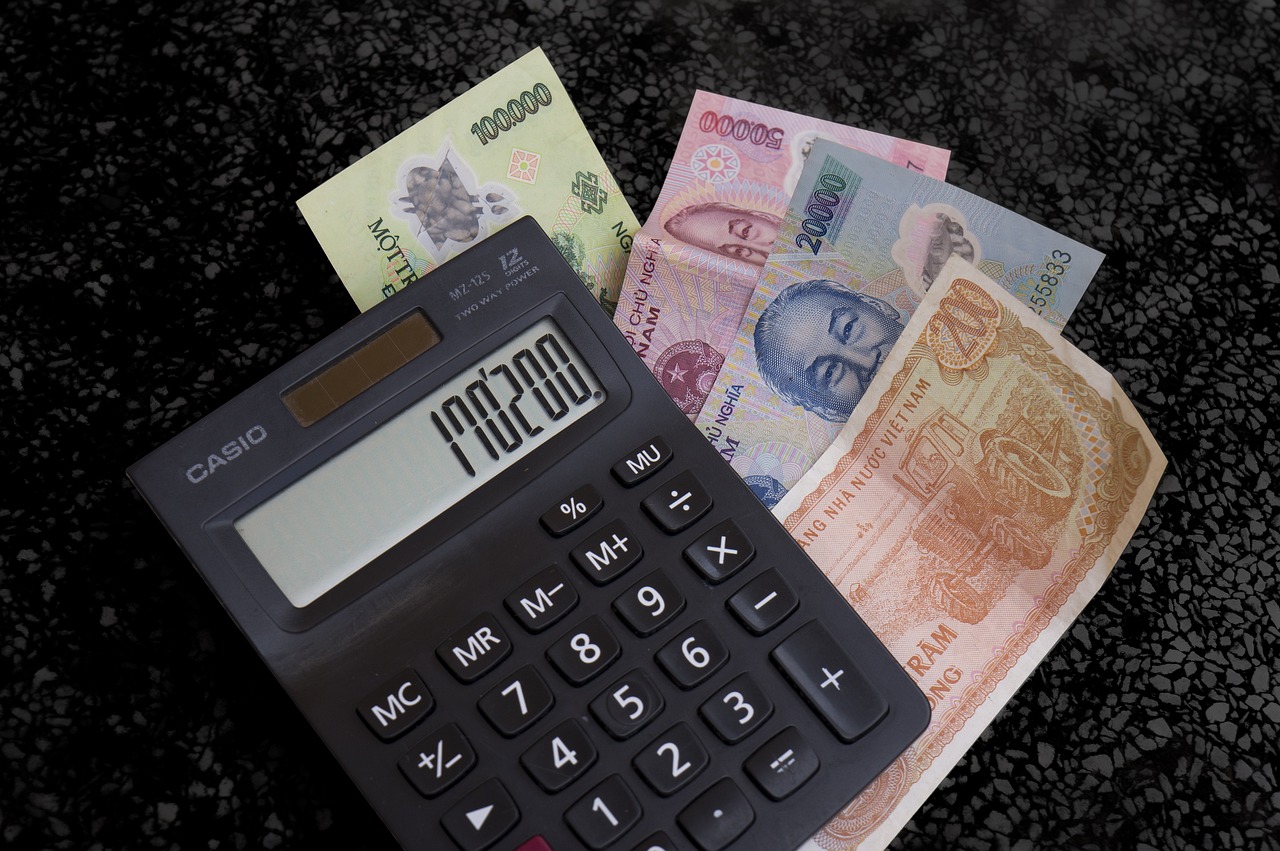Top Countries for Currency Exchange: Online vs Traditional Services, Inflation, Trust, and Fees
GPT_Global - 2025-10-15 17:00:53.0 132
What are the best countries for exchanging foreign currency?
When sending money abroad or exchanging foreign currency, choosing the right country can make a big difference in your remittance process. Different countries offer various exchange rates and service fees, which can significantly impact the overall value of the money you send.
Some of the best countries for exchanging foreign currency include the United States, the United Kingdom, and Japan. These countries have highly developed financial infrastructures, making it easier to find reliable exchange services at competitive rates. The U.S. offers multiple online platforms and banks that provide foreign exchange services, ensuring a seamless experience for senders and recipients alike.
Other favorable countries for currency exchange include Singapore, Switzerland, and the United Arab Emirates. These nations offer strong financial systems with low transaction fees, making them ideal for remittance businesses. By selecting the right destination country for exchanging currency, remittance services can maximize their customers' financial benefits.
In conclusion, it’s important to choose countries with reliable financial systems and competitive exchange rates when dealing with remittances and currency exchange. Doing so ensures that your customers get the best value for their money, and your business stays ahead in a highly competitive market.

How do online money exchanges compare to traditional physical exchange locations?
Online money exchanges have rapidly gained popularity, offering a convenient and efficient alternative to traditional physical exchange locations. One of the primary advantages of online exchanges is the ability to send money anytime, anywhere, without the need to visit a physical location. This flexibility allows users to complete transactions from their smartphones or computers, saving time and effort.
Traditional exchange locations, such as banks or remittance services, often involve long waiting times and require customers to visit in person. These services may also have limited operating hours, adding to the inconvenience. In contrast, online platforms operate 24/7, providing instant transfers and reducing waiting periods for recipients.
Fees also differ between the two methods. Online exchanges typically offer more competitive rates due to lower overhead costs compared to physical locations. This makes online money exchanges a more cost-effective solution for those sending remittances or transferring funds internationally.
Ultimately, the choice between online money exchanges and traditional methods depends on personal preferences. However, online exchanges are quickly becoming the preferred option for many due to their speed, convenience, and affordability.
What impact does inflation have on the currency exchange market?
Inflation can significantly impact the currency exchange market, influencing exchange rates and affecting remittance businesses. When a country experiences inflation, its currency typically loses value relative to other currencies. This means that remittance recipients in foreign countries might receive less value for the same amount of money sent.
For remittance businesses, inflation can create fluctuations in exchange rates, making it difficult to predict the exact amount a sender’s recipient will get. This unpredictability can cause uncertainty among customers, potentially leading to fewer transactions. On the other hand, businesses may need to adjust their exchange rate margins to account for inflationary pressures, which could either benefit or hurt the sender depending on the situation.
Furthermore, inflation in a sender's home country can reduce disposable income, limiting the amount of money sent abroad. This reduction in remittance flow can directly affect businesses that rely on remittance services for a significant portion of their revenue. Understanding inflation's impact on the currency exchange market is crucial for remittance businesses to help clients navigate these changes and offer competitive exchange rates.
Why is the US dollar considered a global benchmark for currency exchange?
The US dollar has long been considered a global benchmark for currency exchange, playing a pivotal role in international trade and remittance services. The dollar's widespread acceptance stems from the economic influence of the United States, which boasts the largest economy in the world. This widespread usage of the dollar ensures that it is a stable and reliable currency for transactions, making it the preferred choice in remittance transfers across borders.
One of the key reasons for the US dollar's dominance in global remittance is its stability. Unlike many other currencies, the US dollar remains relatively immune to hyperinflation and significant economic fluctuations, offering a sense of security to both senders and recipients. This stability makes it a trusted option for individuals and businesses transferring money worldwide.
Furthermore, the US dollar is supported by a strong financial infrastructure and global institutions like the Federal Reserve. These factors contribute to its position as the world's primary reserve currency, making it the preferred choice for international remittance businesses. As such, businesses in the remittance sector often rely on the US dollar to facilitate seamless and efficient cross-border transactions.
What types of currency exchange services are available to tourists?
Traveling abroad often requires currency exchange, and tourists have several options to obtain local currency. From traditional banks to online platforms, the availability of exchange services is diverse, offering various advantages depending on your preferences and needs.
One of the most common options is exchanging currency at banks, which are usually secure and reliable. Many banks offer competitive exchange rates, although you might have to wait in line or pay a small fee. Alternatively, currency exchange kiosks are conveniently located at airports and tourist centers, providing quick access but at slightly higher rates.
Another popular choice is using online remittance services, which allow tourists to transfer money or exchange currency digitally before their trip. This option can save time and often offers favorable exchange rates. Many remittance companies also provide mobile apps for convenient transactions on the go, offering flexibility and ease of use.
Lastly, some tourists prefer using credit cards or prepaid travel cards, which provide a simple way to access foreign currencies without the need for physical exchange. However, keep in mind that foreign transaction fees may apply. Understanding these various options can help tourists choose the best currency exchange service for their travel needs.
How can a money exchange service be trusted with a large sum of money?
When choosing a money exchange service for transferring large sums of money, trust is the most critical factor. To ensure security, look for services with robust encryption methods that protect transactions from fraud. Leading remittance businesses invest in technology that safeguards personal and financial data, giving customers peace of mind.
Another key factor is the service’s regulatory compliance. Trusted money exchange services operate under the laws of the countries they serve, often licensed by government bodies or financial authorities. This ensures they adhere to strict security standards and are held accountable for their services.
Customer reviews and reputation are also essential. A reliable service will have positive feedback from users who have previously transferred large amounts. Transparency in pricing, with no hidden fees or unfavorable exchange rates, also indicates reliability.
Finally, providing 24/7 customer support adds another layer of trust. When dealing with large transactions, it’s important to have access to help whenever you need it. A reputable money exchange service will offer responsive customer support for any concerns that arise during the process.
What role does inflation play in currency devaluation during money exchange?
Inflation is a key factor in currency devaluation, significantly affecting the value of money in the exchange market. As inflation rises, the purchasing power of a country's currency decreases, making it less valuable compared to other currencies. This is especially important in the remittance business, where people send money internationally, as inflation can impact how much money recipients receive after currency conversion.
When inflation is high in one country, its currency tends to lose value against other currencies, leading to a lower exchange rate. This means that for every unit of foreign currency exchanged, recipients in the inflation-stricken country may get less. In the remittance industry, this can result in a reduced value for the money being sent home, affecting families who rely on these funds for everyday needs.
Remittance businesses need to stay informed about inflation trends in different countries to provide the best exchange rates and ensure that their customers are not negatively impacted by currency devaluation. By understanding the role of inflation, these businesses can better navigate currency fluctuations, offering timely and accurate transfers that maximize the value for their clients.
How can you exchange currency without incurring high service charges?
Exchanging currency is a common necessity for many, whether traveling abroad, sending remittances, or doing international business. However, high service charges can diminish the value of your money. To avoid these costly fees, it's essential to find cost-effective ways to exchange currency.
One effective method is to use online remittance services. Many providers offer competitive exchange rates with low or zero fees, ensuring you get more value for your money. Services like PayPal, Wise, and Revolut are great options for quick and affordable currency conversion.
Another way to minimize charges is by using local banks that offer currency exchange at competitive rates. Some banks offer better rates for account holders, and their service fees are generally lower than those of standalone exchange services.
It's also important to compare exchange rates before committing to a transaction. Using currency comparison websites can help you identify the most favorable rates across different platforms.
By planning ahead and utilizing these strategies, you can exchange currency without the burden of excessive fees, saving money for your remittance or travel needs.
About Panda Remit
Panda Remit is committed to providing global users with more convenient, safe, reliable, and affordable online cross-border remittance services。
International remittance services from more than 30 countries/regions around the world are now available: including Japan, Hong Kong, Europe, the United States, Australia, and other markets, and are recognized and trusted by millions of users around the world.
Visit Panda Remit Official Website or Download PandaRemit App, to learn more about remittance info.



